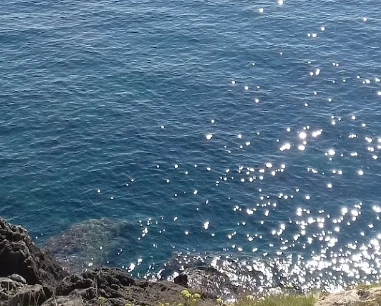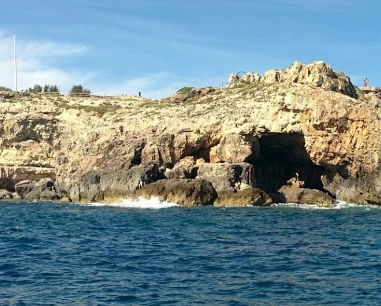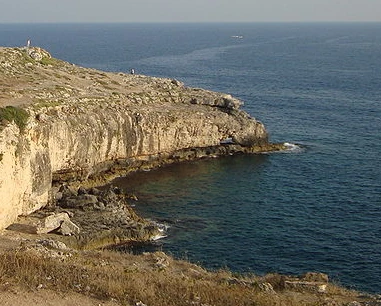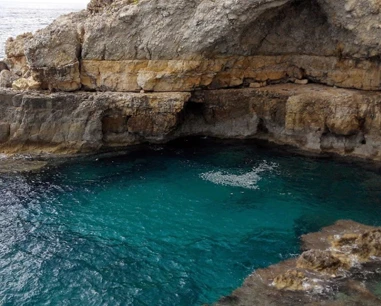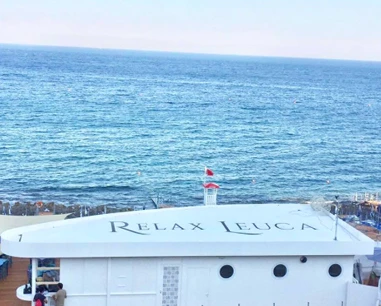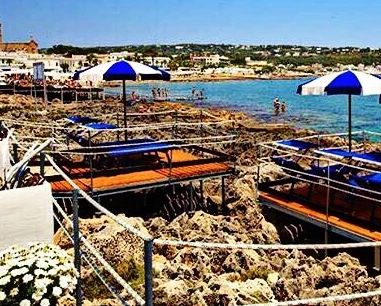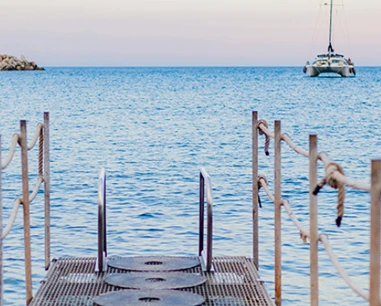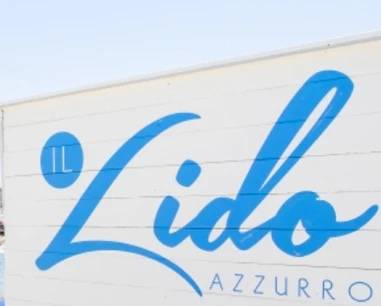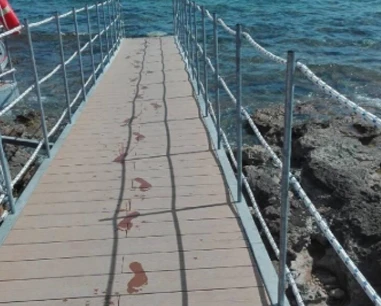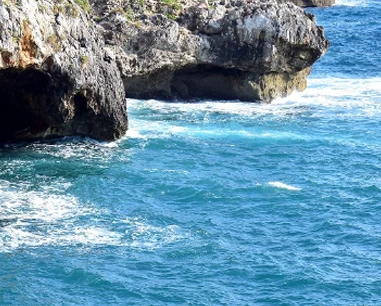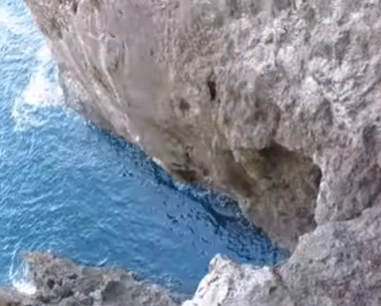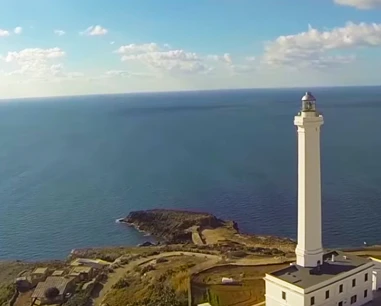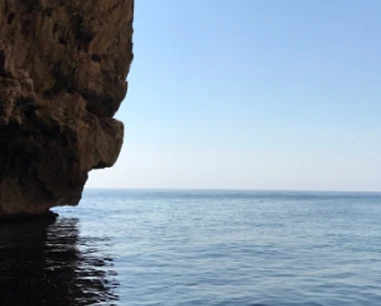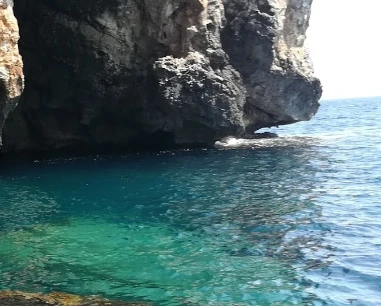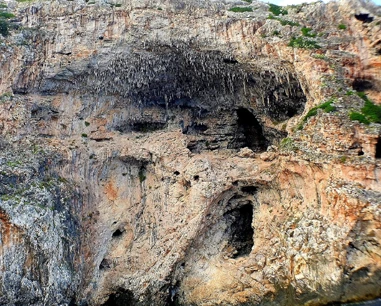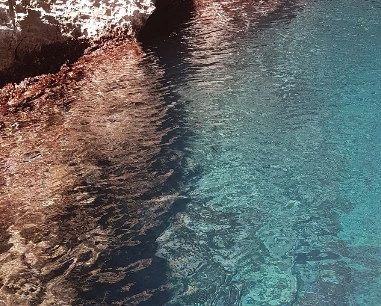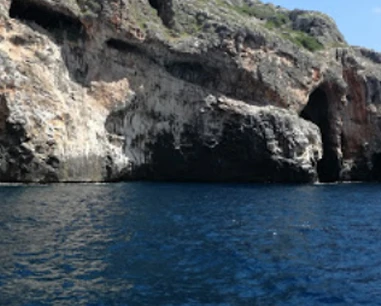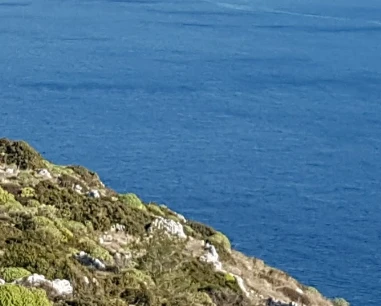41
Hotels and restaurants near Santa Maria di Leuca - Castrignano del Capo
Agriturismo Serine
Strada Provinciale San Giuseppe - Contrada Serine - Castrignano del Capo (Lecce)
+39 0833 751337
Hotel Rizieri
Via Colombo, 24 73040 Leuca (Le)
+39 0833.758.007
La Corte di Leuca
Via Virgilio, 57 - Castrignano del Capo Lecce
+39 0833 21 91 82
Messapia Hotel & Resort
C.da Masseria Li Turchi, Santa Maria di Leuca LE
+39 0833 750027
Hotel Magna Grecia
Via Lungomare Magna Grecia - Patù (LE) Loc. Felloniche
(+39) 366 950 6287
Finisterrae
Via A.Toscanini, 21, 73034 Gagliano del Capo (Le)
+1 304 593 0459
Mimi Leuca
Via Leonardo da Vinci, 113, 73040 Santa Maria di Leuca (Le)
+39 344 289 9773
Masseria Palane
Via Vicinale San Giovanni Battista s.n. 73053 Patù (Le)
+39 388 996 6930
Residence Bellevue
Via fra" Bonaventura, 30 - Santa Maria di Leuca - Castrignano del Capo (Le)
+39 329 9344152
Aura Solis
Via Enea snc, C.da Curticelli, 73040, Santa Maria di Leuca (Le)
+39 328 33 87 348
Hotel Montirò
Contrada Montiro" - 73040, Santa Maria di Leuca (Le)
+39 0833 758738
Il Pappagallo Bed and Breakfast
Via Montecucco 19 - Santa Maria di Leuca - LE
+39.0833 1857083
Villa Crea
Marina di Felloniche, Castrignano del Capo (LE)
+39 335 6810 310
Hotel Terminal
Lungomare Cristoforo Colombo, 73040 Santa Maria di Leuca (Lecce)
+39 0833 758242
Hotel L" Approdo
Via Panoramica 1, 73040 Santa Maria di Leuca (Le)
+39 0833 758 548
Volito Hotel
Via Volito I, 73053 Patù (Le)
(+39) 0833 604204 - (+39) 376 107 9284
B&B Villa Ines
Via Leonardo da Vinci 44, 73040 Castrignano del Capo - Santa Maria di Leuca (Le)
+39 349 3941460
B&B La Chiocciola
Via Roma, 52, 73040 Castrignano del Capo (Le)
(+39) 377 596 03 58
iChiani Charming & Sustainable Holidays
SS 275, 51, 73034 Gagliano del Capo (Le)
+39 345 604 6302
Azienda Agrituristica Masseria La Verna
Via Enrico Fermi, 73053 Patù (Le)
+39 328 208 8713
La Casa del Fico
Litoranea Leuca-Novaglie km 44, 73034 Gagliano del Capo (Le)
+39 0833 185 2172
Picca Picca
Via Pozzo Pasulo, 37, 73040 Morciano di Leuca (Le)
+39 335 536 0560
Antico Borgo Marchese
Via Primo Maggio - 73040 Morciano di Leuca (Le)
+39 333 59 67 315
Villa Loreta
Via A. Vespucci, 73031 Marina di Novaglie (Le)
+41 (0)79 35 777 38
Anna 1924 Rooms & Suites
Via XXIV Maggio angolo Via Giacomo Leopardi,73034 Gagliano del Capo (Le)
+39 371 453 4851
Corte degli Allori
Via Campana 6, 73040 Giuliano di Lecce (Le)
+39 366 42 78 777
Agriturismo Terra di Leuca
Via S. Marina, 73050 Ruggiano (Le)
+39 339 410 4698
Agriturismo Masseria Alcorico
Contrada "Cucuruzzi" 73034 Gagliano del Capo (Le)
+39 0833 547391 - Cell. +39 338 945 0833
Agriturismo Sikalìndi
SP275 KM 31, 73034 San Dana (Le)
+39 351 048 7199
B&B Masseria San Dana
Via Campurra, 11, 73034 Gagliano del capo (Le)
+39 388 588 9968
Nilosira Osteria e B&B
Via E. D"Amore 16, 73040 Barbarano del Capo (Le)
+39 339 345 3762
B&B Aurora Salentina
Via Fanfulla da Lodi 32, 73040 Barbarano del Capo (Le)
+39 347 676 3363
Scogliera del Gabbiano
Via Litoranea Leuca Novaglie km1.5, 73040 Gagliano del Capo (Le)
+39 0833 758 808
B&B Palazzo la Traja
Via Piave, 32, Gagliano del Capo (Le)
+39 348 692 6342
Case Vacanza Giuliana
C.da Masseria Li Turchi, 73040 Santa Maria di Leuca (Le)
+39 339 336 2628
B&B La Magnolia
Viale degli Eroi 47, 73040 Morciano di Leuca (Le)
+39 329 833 6875
B&B Villa Pedaci
Via Foresta Forte, 2, 73034 Gagliano del capo (Le)
+39 366 384 4411
Albergo Del Santuario
Via Francesco Pireca, 73040 Santa Maria di Leuca (Le)
+39 0833 758 696
BiancaLeuca Guesthouse
Via Sandro Pertini 60, 73040 Santa Maria di Leuca (Le)
+39 347 045 7810
B&B Mareincantato
Via Dante Alighieri, 44, 73040 Santa Maria di Leuca (Le)
+39 331 367 5513
Albergo Minerva
Via Quinto Ennio, 73040 Santa Maria di Leuca (Le)
+39 0833 758 564
The names of beaches, lidos, natural swimming pools, caves, coastal towers, nature parks and reserves, along with the names of accommodation facilities such as hotels, bed and breakfasts, agritourisms, holiday homes, resorts, hostels and campsites, are deliberately left in their original language to respect the culture, historical identity and authenticity of the area.
Last update, 05/02/2025


